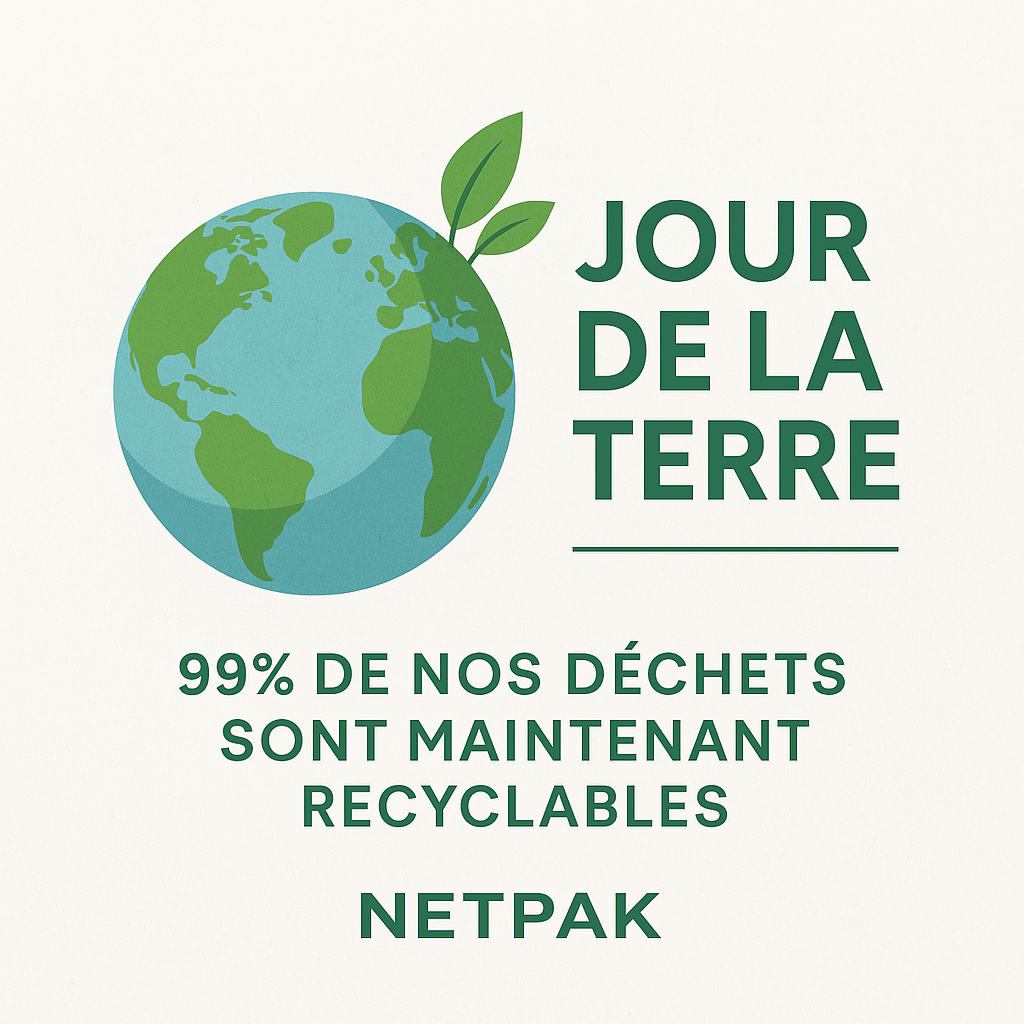On Earth Day (April 22), we reflect on how our consumption habits – especially in packaging – impact the environment. Packaging waste contributes significantly to global pollution, but innovative solutions are emerging to reduce its ecological footprint.
Sustainable Packaging: A Key Challenge for Our Planet
Millions of tons of packaging end up in landfills or oceans annually, harming ecosystems through plastic pollution. Across Canada, businesses and consumers are adopting responsible practices:
- Reducing non-recyclables (single-use plastics, polystyrene)
- Using biodegradable materials (paper, cardboard, bioplastics)
- Innovating reusable systems (return programs, eco-designs)
Netpak: Committed to Zero Waste (99% Recyclable)
At Netpak, we prove customized packaging can be sustainable:



Our 2025 goal: 100% recyclable packaging through local sustainable partnerships.
How Can You Make a Difference?
 For Businesses:
For Businesses:
- Audit packaging with sustainable suppliers like Netpak
- Train teams on waste reduction strategies
- Launch reuse programs (container returns/refills)
 For Consumers:
For Consumers:
- Choose brands with eco-friendly packaging
- Repurpose creatively (boxes→storage, jars→planters)
- Recycle right:
- Learn local rules (e.g., clean containers)
- Avoid “wish-cycling” contaminants
 Community Action:
Community Action:
- Join cleanups preventing waste in ecosystems
- Advocate for better recycling policies
- Share efforts #PackagingWithPurpose
Did You Know? If every Canadian recycled one extra box monthly, we’d save 40+ million trees/year (Statistics Canada).
Conclusion: Packaging for a Healthier Planet
The industry must lead environmental change. At Netpak, we’re proud to drive this shift through innovation and education.
